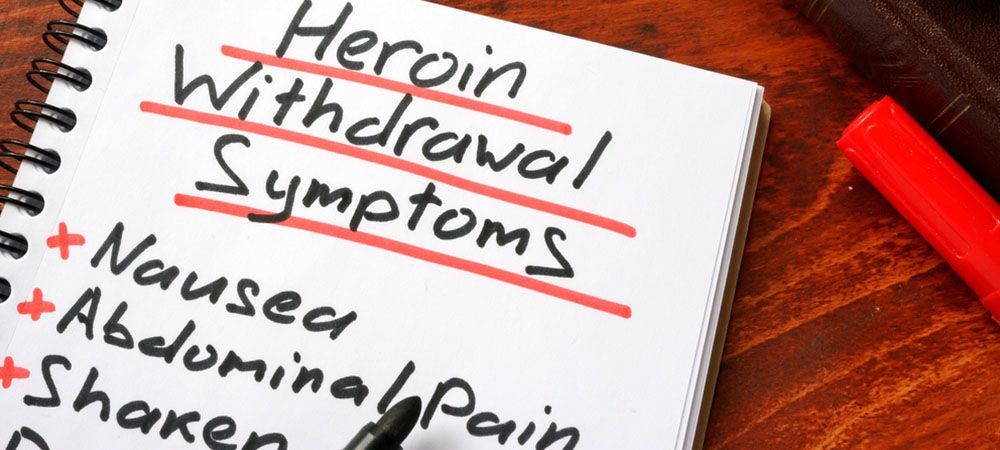3 Effective Tips To Manage Addiction Withdrawal Symptoms
Withdrawal symptoms can be very challenging and painful to overcome. This is why there is a need for tips to help manage withdrawal symptoms. Quitting a habit suddenly or even slowly doesn’t come easy. This is because the body begins to crave a particular addiction that it was used to.
Often, after resisting the temptations of the drug, the withdrawal symptoms can be worse. A lack of proper care during withdrawal can lead to a relapse. You see, the cravings for the substance can worsen and lead to disastrous effects.
Most of the time, these withdrawal symptoms manifest in the form of health problems. But, withdrawal symptoms can be mental too. That is why the experts at Addiction Healing Centre have pooled together a list of ways to manage addiction withdrawal.
What are Withdrawal Symptoms?
Withdrawal symptoms are violent reactions that result from the lack of a certain substance in the body. Usually, the body is already used to this drug. This causes a form of starvation that causes the body to break down.
This is why learning how to manage withdrawal symptoms greatly improves your chances of recovery. Examples of physical withdrawal symptoms are:
- Dizziness
- Headaches
- Stomach aches
- Nausea
- High temperature
- Joint pains
It is important to note that withdrawal symptoms aren’t restricted to a physical nature. The process of withdrawal can also take a heavy toll on your mental health in the following ways:
- Depression
- Weight gain
- Frustration
- Lack of focus
- Anxiety
You may start to experience any of these symptoms within 2-3 days after you stop using a substance. This is why it’s essential to undergo detox at an addiction treatment centre near you. They have access to treatment and the expertise necessary to manage the symptoms.
Withdrawal Symptoms: Can They Get Worse
Identifying potential triggers that worsen withdrawal symptoms will help you prepare for them. Below are some of them.
Stress
This is a typical trigger for withdrawal symptoms. An unsettled mind will battle with the temptations of addiction. The body begins to vigorously crave drugs and stress relief. This manifests physically in the form of dizziness, headaches, nausea and more.
When this happens, you need to set your mind at ease. Engage in meditation and breathing exercises. These can help ease your withdrawal symptoms.
Quitting Abruptly
One of the biggest tips for managing withdrawal symptoms is quitting slowly. Once your body gets used to a particular, care must be taken to stop the habit.
Quitting your addiction suddenly can significantly speed up withdrawal symptoms. You need to gradually reduce your intake and give your body time to adjust to the changes. In doing so, your body will learn to stop depending on the addiction.
There are techniques you can take to ease the process or stopping. For instance, you can take on safer habits like drinking tea if you suffer from alcohol addiction.
Substituting tea or a healthier drink for alcohol can trick your body into adjusting. For substances like cocaine and heroin, you can enlist the help of professionals to draw up an effective withdrawal plan.
Proximity to Addictive Substances
When going through recovery, it is best to avoid places and people you associate with the substance. You need to ensure that you are not close to places where you used to indulge. For example, if you recover from alcohol addiction, you need to stop visiting the pub. Ensure that you avoid meeting any of your old friends at bars for a while. No matter how much willpower you may possess, proximity to these places can worsen withdrawal symptoms.
Try and make new friends that are also going through recovery like you. Engage in new hobbies and activities like jogging or swimming. These will make it easier for you to cope with withdrawal symptoms.
Neglect
Once you quit using, there are treatment therapies and medications that can help. These drugs are designed to help you treat withdrawal symptoms easily. As such, it is important not to ignore these treatments.
Doing so can make your withdrawal symptoms worse. Typically, your body will show early signs of withdrawal symptoms. It’s up to you to take action when they happen. If left untreated, those symptoms will only get worse.
Related article: How Long Does Heroin Addiction Withdrawal Take?
Tips to Help Manage Withdrawal Symptoms
Below are three of the most effective tips to help you keep withdrawal symptoms at bay.
Avoiding Triggers
You can break down old patterns with practice and build new ones that are a lot better. Examples of ways to avoid triggers are:
- Avoid past colleagues that indulge in that habit
- Carry healthy snacks around. They can provide useful in distracting you from your craving
- Distract yourself with a hobby or new activity
- Be aware of your withdrawal symptoms and urges
Surround Yourself with the Right Support
Having a supportive group of people around you can make it easier to maintain your withdrawal symptoms. Friends and family can be a part of your support system. However, they may not fully understand the scope of your recovery.
You can educate them on the severity of your withdrawal. Make them understand what you are going through. This will make it easier for them to help you cope with your withdrawal symptoms.
Reward Yourself Every Day
Every single day you are completely free of addiction is an enormous achievement. You may not think so, but all the distance you place between you and your addiction is worth celebrating.
Appreciate the effort everyday by rewarding yourself at least once a day. Don’t wait for others to exalt you, do it for yourself. Regular incentives don’t have to be a big deal. Neither do they have to involve a party.
It can be reading a good book, enjoying a hot bath or anything else. This will go a long way to making you feel good about the effort you put into curbing your habit. This tip on managing withdrawal symptoms is highly beneficial to your mental health.
Conclusion
Do not take withdrawal symptoms likely. Addiction withdrawal symptoms are unavoidable. More importantly, they can be dangerous when managed poorly.
The first tip to help you manage addiction withdrawal symptoms is to find professional addiction treatment in Vancouver. They have the experience and access to treatments necessary to manage withdrawal symptoms better. Furthermore, avoid triggers and work with a support system. On those days when you’re down, your support system can help get you back in the right frame of mind. Call Inspire Change Drug Rehab in Vancouver for addiction treatment programs.





